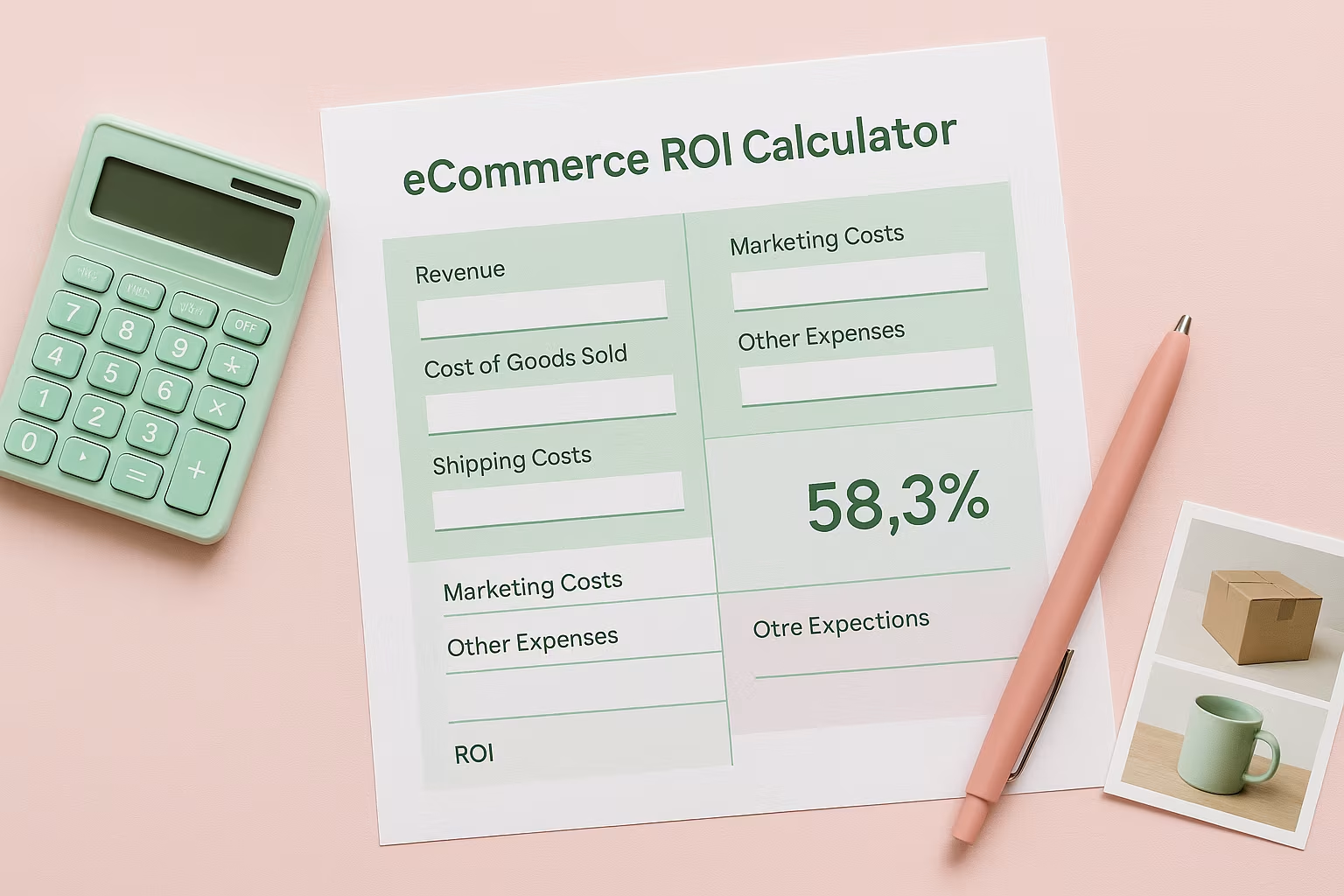.avif)
Starting a white label business is one of the simplest ways to enter the market without creating products from scratch.
Let’s break down the process in a way that’s practical, clear, and easy to follow, so you can get started sooner and confidently explore how to start private-label business alternatives as needed.
Launching a White Label Business Online in 7 Steps
Starting a white-label business online becomes much easier when you follow a clear and structured plan. These 7 steps outline everything you need, whether you’re launching a white-label or exploring private label ecommerce opportunities.
Step 1: Understand How White-Labeling Works
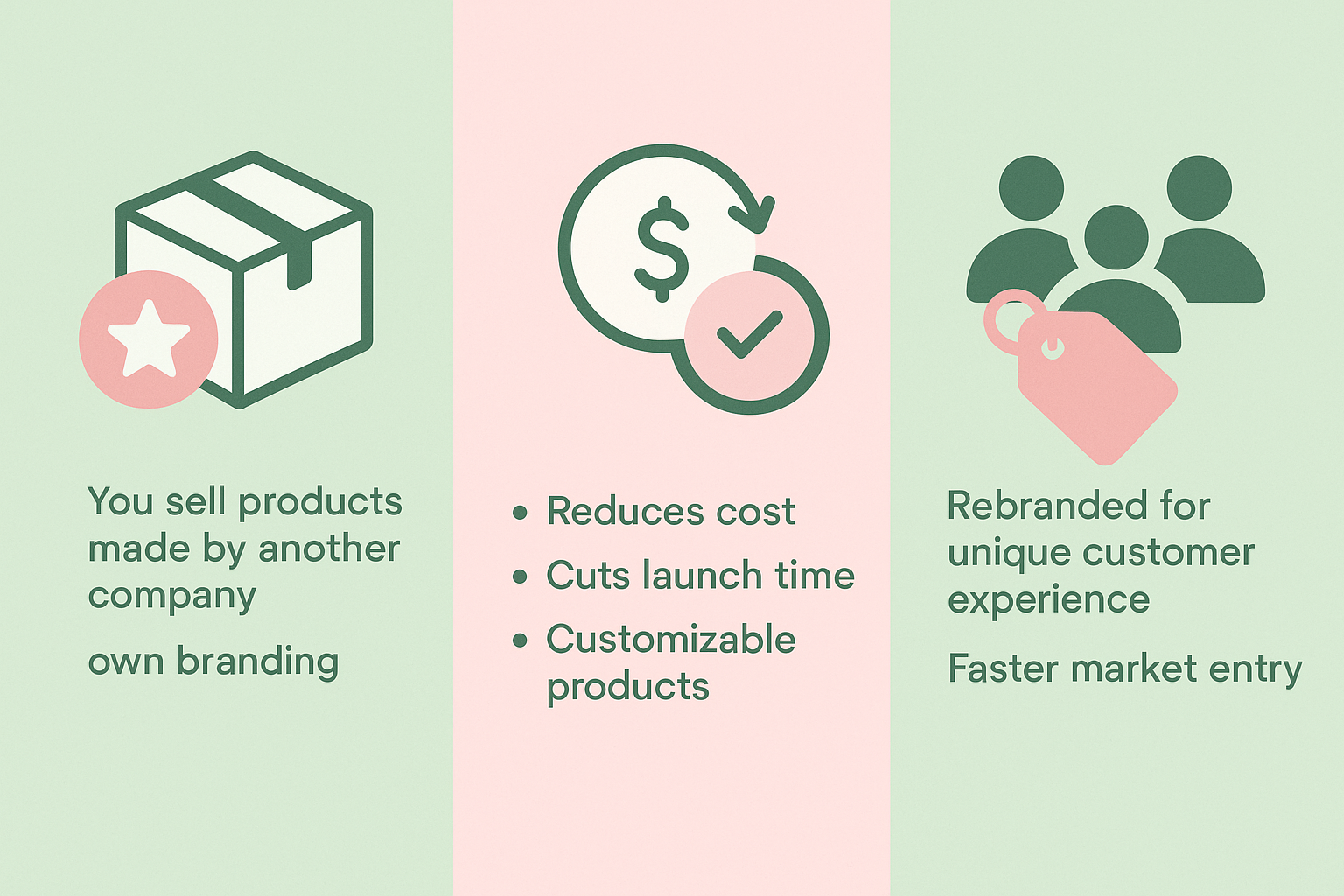
White-labeling allows you to sell items made by another company under your own branding. This lets you focus more on developing a strong market presence rather than handling production.
The model works because it reduces cost and time to launch while giving you access to ready-made, customizable products that fit your brand vision.
- This model helps reduce private-label business startup complexity.
- Items can be rebranded for a unique customer experience.
- You gain faster market entry through pre-made white label product solutions.
Step 2: Choose Your Niche and Target Audience
A clear niche helps you stand out in a crowded marketplace. Focus on markets where you can add distinct value through branding and positioning.
Understanding your audience allows you to shape messaging, design, and offers that appeal to specific customer needs and buying motivations.
Step 3: Select the Products You Want to White-Label
Choose private-label products with stable demand and manageable customization requirements. Popular items with simple tweaks offer stronger sales potential and easier brand adaptation.
Compare product types based on profitability, quality, and ease of branding so you invest in items that support long-term market relevance.
- Items with existing demand create lower marketing barriers.
- Simple customization helps maintain efficient brand rollout.
- Avoid items requiring complex testing or heavy regulatory steps.
Step 4: Find and Assess Reliable White-Label Suppliers
Your supplier determines product consistency and delivery speed. Look for manufacturers with proven reliability and goods you can elevate through thoughtful branding.
Comparing supplier pricing helps you protect your profit margin while maintaining consistent product quality as you scale.
Always test your private label product samples to confirm quality and ensure your brand meets acceptable market standards before launching.
- Review suppliers offering clear communication practices.
- Compare MOQ, pricing, and order fulfillment capability.
- Choose suppliers providing samples for hands-on verification.
Step 5: Build Your Branding and Customize the Product
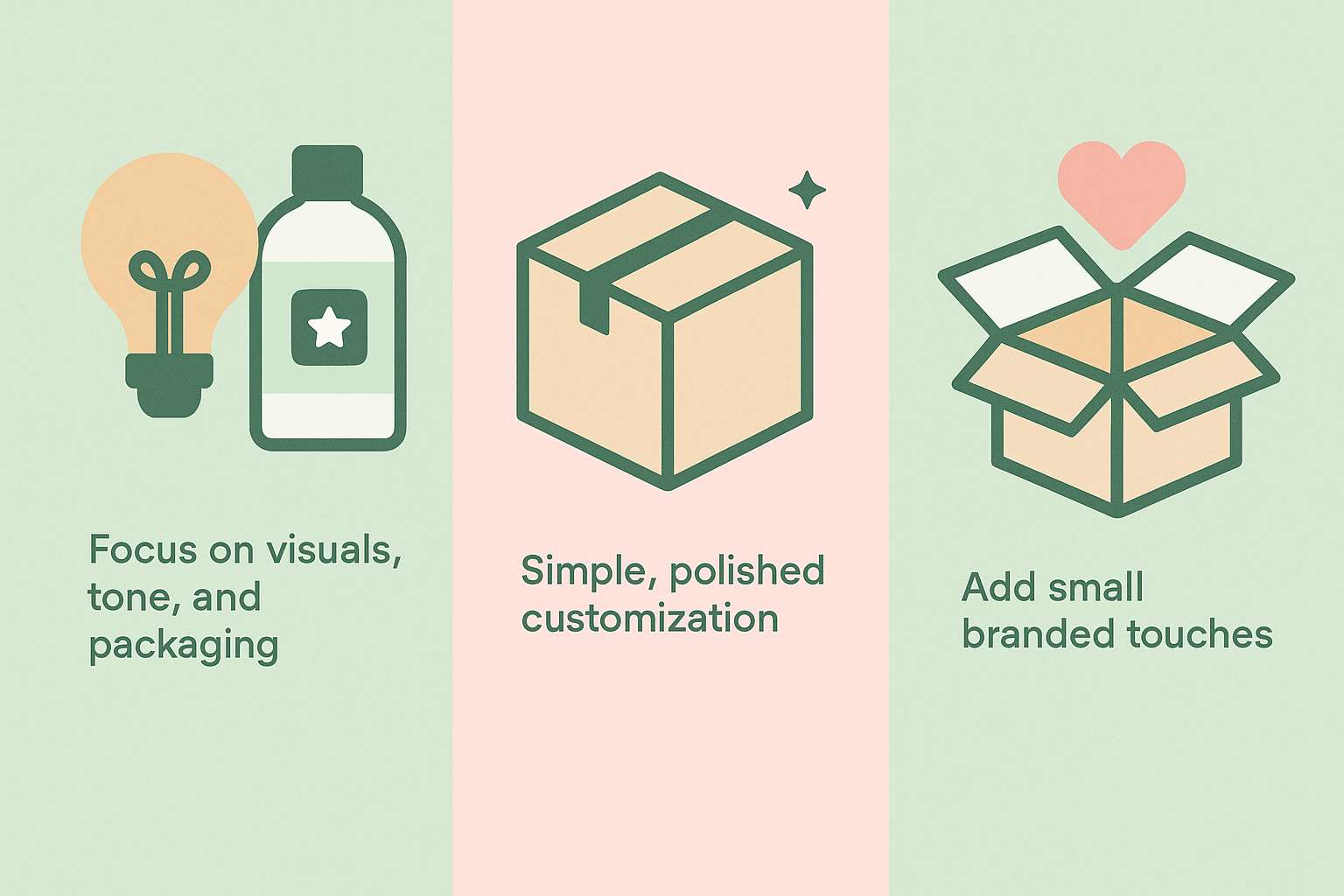
Your branding transforms a generic item into something memorable. Focus on visuals, tone, and packaging that reflect your unique selling approach.
Simple yet polished customization, labels, packaging, or inserts help your products feel more premium and intentional in the eyes of customers.
Add small branded touches that elevate the unboxing experience and create a stronger emotional connection with buyers.
Step 6: Set Up Your Online Store or Sales Channels
Choose platforms that match your private-label business goals, whether it’s Shopify, Etsy, Amazon, or your own website. These channels provide tools that support smooth customer navigation and sales flow.
A clear layout, strong visuals, and benefit-led content make it easier for customers to see why your offer stands out with distinct branded features.
- Product pages should highlight meaningful customer benefits.
- High-quality images emphasize unique branded elements.
- Simple checkout processes improve conversion success rates.
Step 7: Launch, Promote, and Scale Your White-Label Business
Launch with marketing strategies that emphasize what makes your brand different. Focus on methods that build early trust through consistent brand storytelling.
As you grow, monitor performance, refine your offers, and expand into new categories with items that show strong customer traction.
Top Private & White Label Business Ideas to Start Selling Successfully
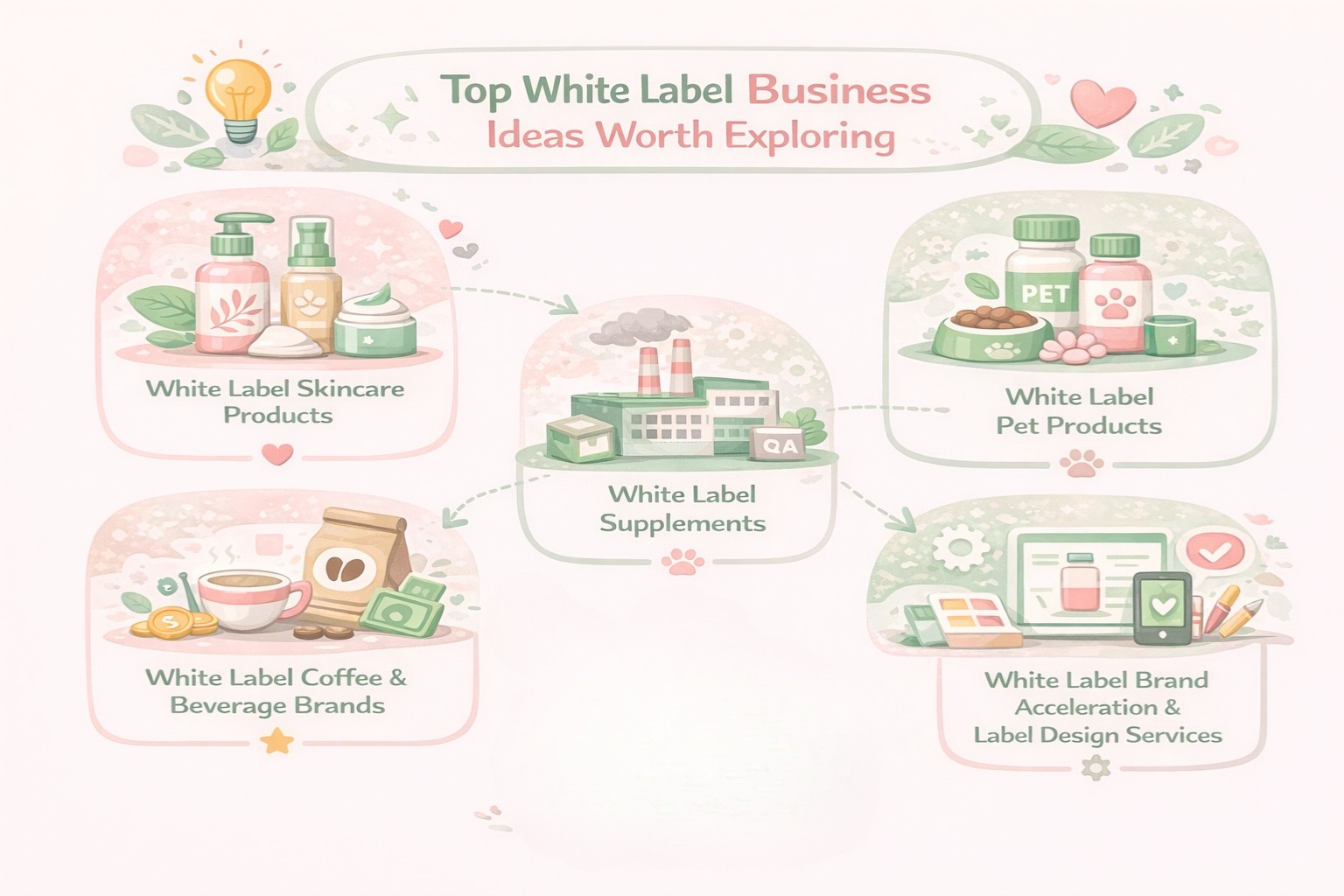
Choosing the right product category is a key step when deciding how to start a private-label business with white labeling. The ideas below focus on high-demand markets where branding, positioning, and customer trust play a major role in long-term success.
Skincare Products
Private label skincare is a popular option due to strong consumer demand and repeat purchasing behavior. Products like cleansers, moisturizers, and serums allow brands to differentiate through formulation focus, packaging, and brand messaging without handling production.
Coffee and Beverage
Coffee and beverage products work well for lifestyle and community-driven brands. From specialty coffee blends to functional beverages, white labeling enables the launch of established products while building a unique brand identity centered on taste, values, and experience.
Supplements
Private label supplements are a scalable white label opportunity for wellness-focused brands. Pre-formulated vitamins, powders, and capsules enable businesses to enter the market more quickly, focusing on education, trust-building, and fostering long-term customer relationships.
Pet Products
Pet products continue to see steady growth as owners prioritise health and well-being for their animals. White label pet supplements and care products offer strong potential for repeat sales and brand loyalty in a niche where trust is essential.
Brand Acceleration and Label Design Services
Not all white label opportunities are physical products. Services such as brand acceleration, packaging support, and label design help businesses launch faster by providing ready-made frameworks that can be customised and sold under their own brand.
How White Label Products Fit Into Your Business Model?
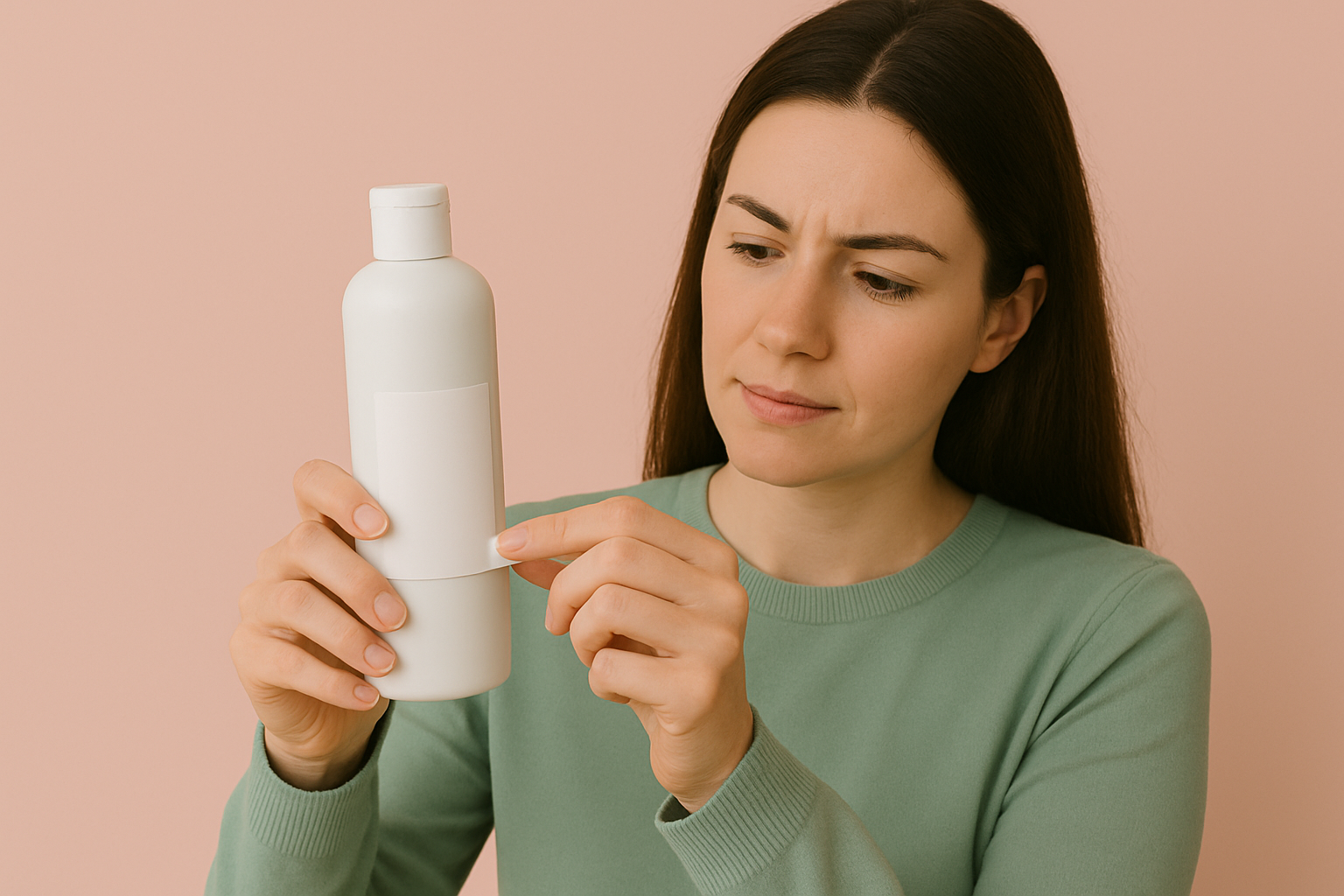
White labeling allows a business model where a manufacturer produces high-quality products or services that businesses can rebrand as their own. Instead of creating something from scratch, you focus on applying your branding, packaging, and overall positioning to make the offering feel uniquely yours.
This helps you enter the market quickly with lower upfront investment and fewer production risks.
The process is simple: you choose an existing white-label product, customise it to match your brand, and launch it to your audience. This approach streamlines development, speeds up your market entry, and lets you sell polished, ready-to-use solutions under your own name.
- Customisation typically includes labels, packaging, and design elements.
- The model lowers development costs and speeds up your market entry.
- White labelling lets you sell ready-made products under your own brand.
What Are the Benefits of Private-Labeling?
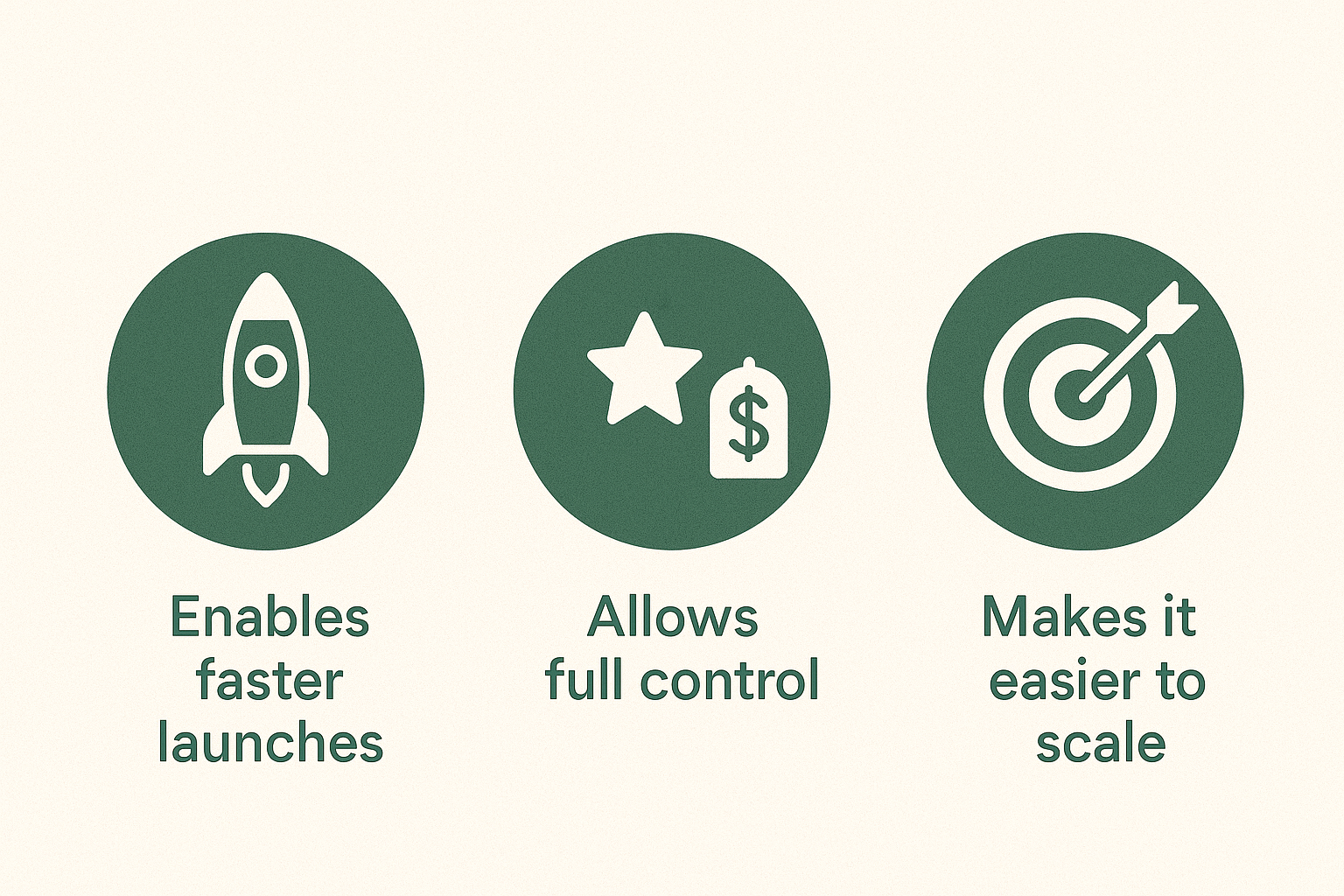
Private-labeling gives you the advantage of selling products under your own brand without creating them from scratch. This makes selling private label a smart strategy for entering the market faster while focusing on areas that drive growth, such as branding, marketing, and customer loyalty.
Because products are already developed, your startup costs are typically lower. You can also expand into new niches or introduce variations quickly, giving you more control over pricing, packaging, and brand positioning.
- Enables faster launches with reduced development costs.
- Allows full control over product branding and customer perception.
- Makes it easier to scale by adding new product variations or niches.
Most importantly, private-labeling empowers you to build a unique identity in crowded markets. This helps attract repeat customers and strengthens your long-term brand equity.
How Do You Find the Best Private-Label Products Manufacturers?
Finding the right private-label manufacturer is one of the most important decisions you’ll make. A reliable supplier ensures that your items meet quality standards, support your branding needs, and scale with your business.
The sections below break down what to look for, how to evaluate samples, and the red flags to avoid.
Key Qualities to Look for in a Private Label Manufacturer
A strong manufacturer should offer more than just good products; they should be a supportive and transparent partner. Prioritize suppliers who communicate clearly, provide detailed product information, and have experience working with private-label businesses.
It’s also important that they offer customization options so your items can reflect your unique brand identity while maintaining consistent quality.
- Seek suppliers with proven experience in private-label production.
- Look for clear communication and responsive support channels.
- Ensure they offer branding options such as custom labels and packaging.
- Confirm they can scale production as your business grows.
How to Review Samples and Evaluate Quality
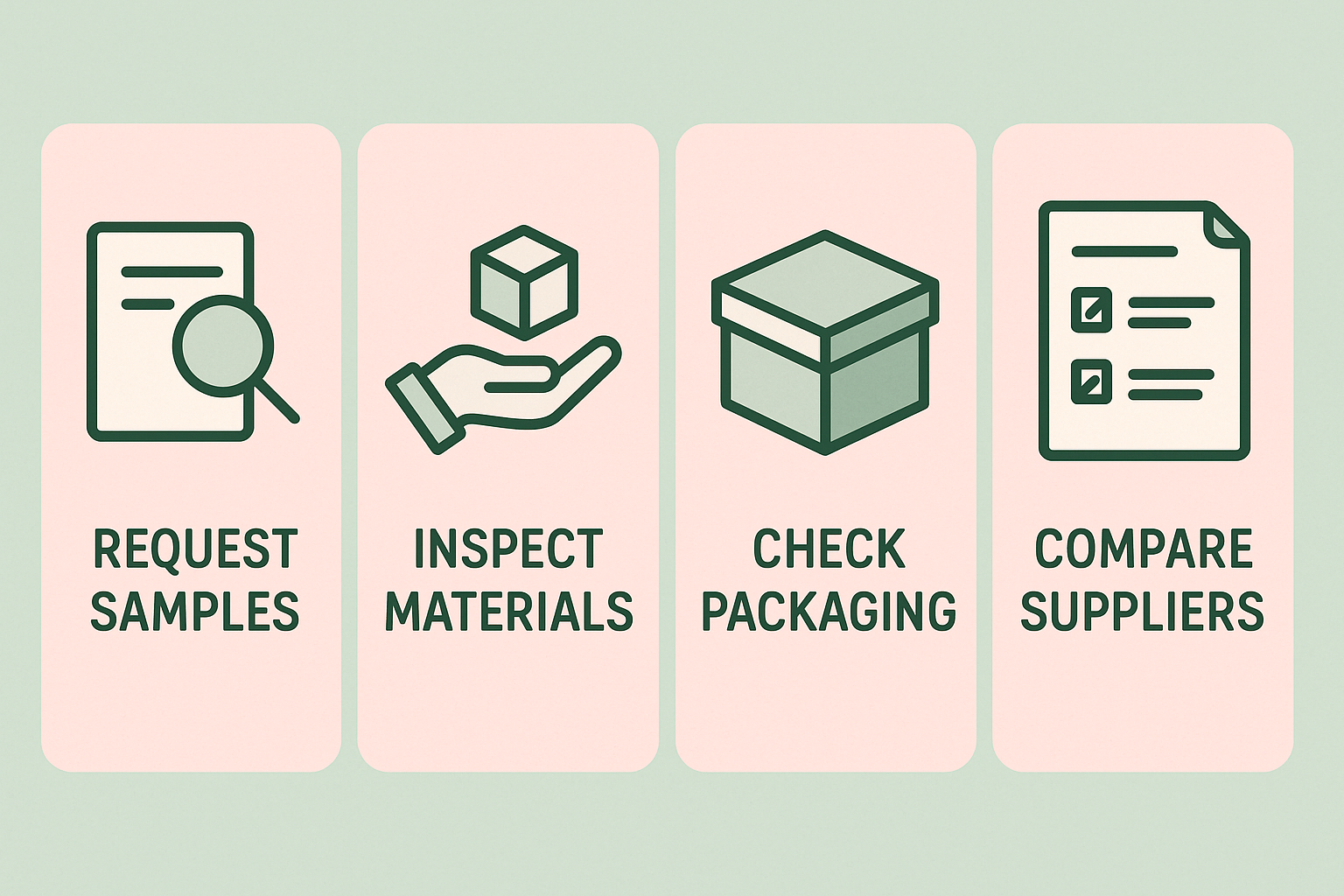
Before committing to a supplier, always request samples. This allows you to evaluate product durability, packaging quality, materials used, and overall customer experience.
Testing firsthand also prevents issues later on, such as inconsistent manufacturing or subpar materials that could harm your reputation.
- Inspect materials for durability and consistency.
- Examine packaging to ensure it feels professional and aligned with your brand.
- Compare samples from multiple suppliers for quality differences.
- Look for any defects that may signal quality control issues.
Common Red Flags When Sourcing Products
Not all manufacturers operate with the same level of reliability. Identifying red flags early can save your business from costly mistakes. Avoid suppliers who are vague about their processes, avoid sample requests, or push you into commitments without clear terms.
You should also be cautious of unrealistic pricing that seems too good to be true, as it may indicate poor product quality or unreliable production.
- Be wary of suppliers who avoid providing samples.
- Avoid those with unclear pricing or inconsistent communication.
- Watch out for extremely low prices that signal cutting corners on quality.
- Don’t proceed with manufacturers unwilling to sign clear manufacturing agreements.
Ready to Launch Your Own White Label Brand?
Building a successful white-label or private-label business starts with taking the first step, choosing a product, and committing to your brand vision. The sooner you begin, the faster you can carve out your place in the market and start generating momentum.
If you're ready to turn your ideas into a fully branded product line, now is the perfect time to take action. Start small, stay consistent, and let your brand grow through smart decisions and customer-focused improvements.
FAQ
Private labeling is when you take products made by private-label manufacturers and add your own brand on them. The private-labeling process is super simple: find a reliable private-label manufacturer, choose a product that fits your needs, tweak it to match your brand, and voilà! You’ve got a product collection with your own private labels. It's a smart way to create unique offerings, grow your brand, and cut out a lot of the headaches of traditional manufacturing.
Finding good private-label manufacturers is key to nailing private labeling. Start by browsing directories like Alibaba or ThomasNet. Check reviews, request samples, and see if they offer customization options to fit your product line. Don’t rush into a partnership, though! Test their product quality, negotiate fair terms, and make sure their production timelines align with your needs. Building a solid relationship with your private-label manufacturer can make all the difference in launching a smooth, successful product line.
Private labeling is a no-brainer if you want to build your brand without breaking the bank. With private-label manufacturers handling production, you can focus on designing packaging, building your product line, and getting it to market faster. Plus, you get to skip all the upfront costs of traditional manufacturing, so your budget can go toward growing your business. It’s also a game-changer for standing out in a crowded market. You’re not just reselling generic products, you’re creating something unique that reflects your brand. Add in higher profit and the ability to quickly adapt to trends, and private labeling becomes a winning formula for ecommerce success.
Related blogs

Price Elasticity Of Demand Calculator: Predict Revenue Impact in Seconds
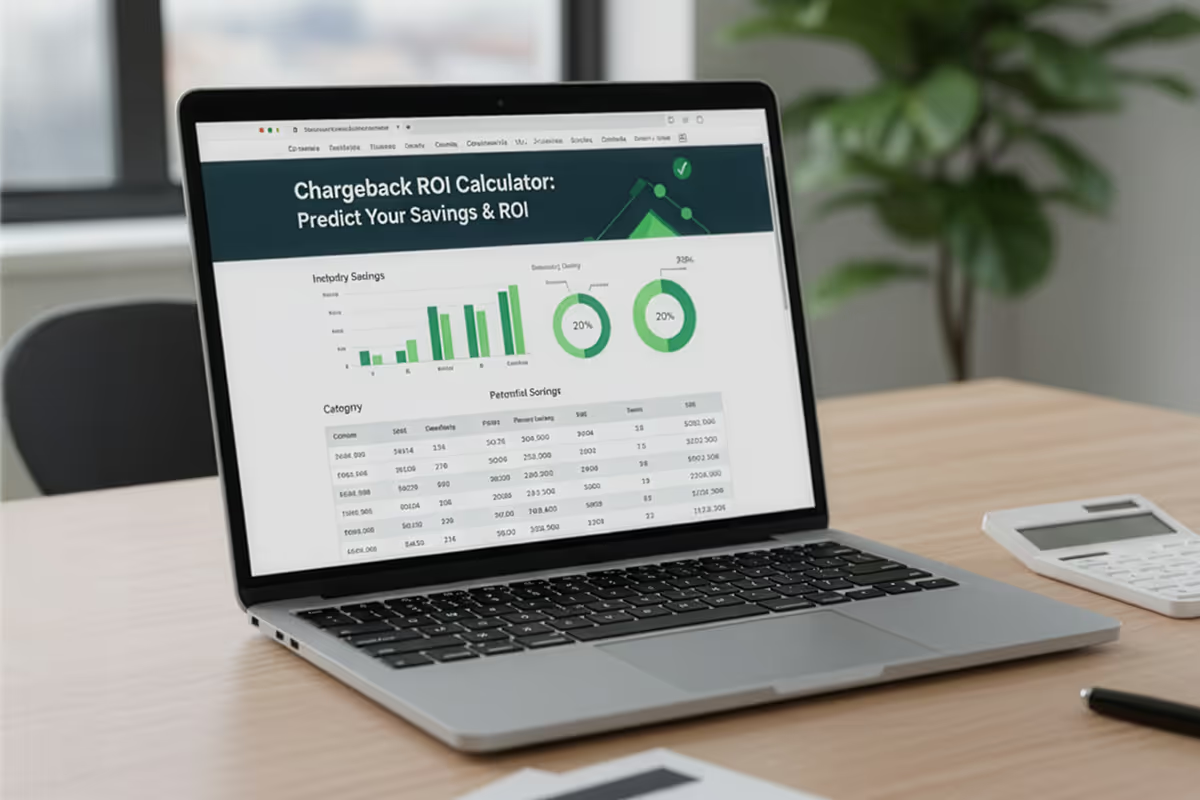
Chargeback ROI Calculator: Predict Your Savings and ROI in Under 10 Seconds
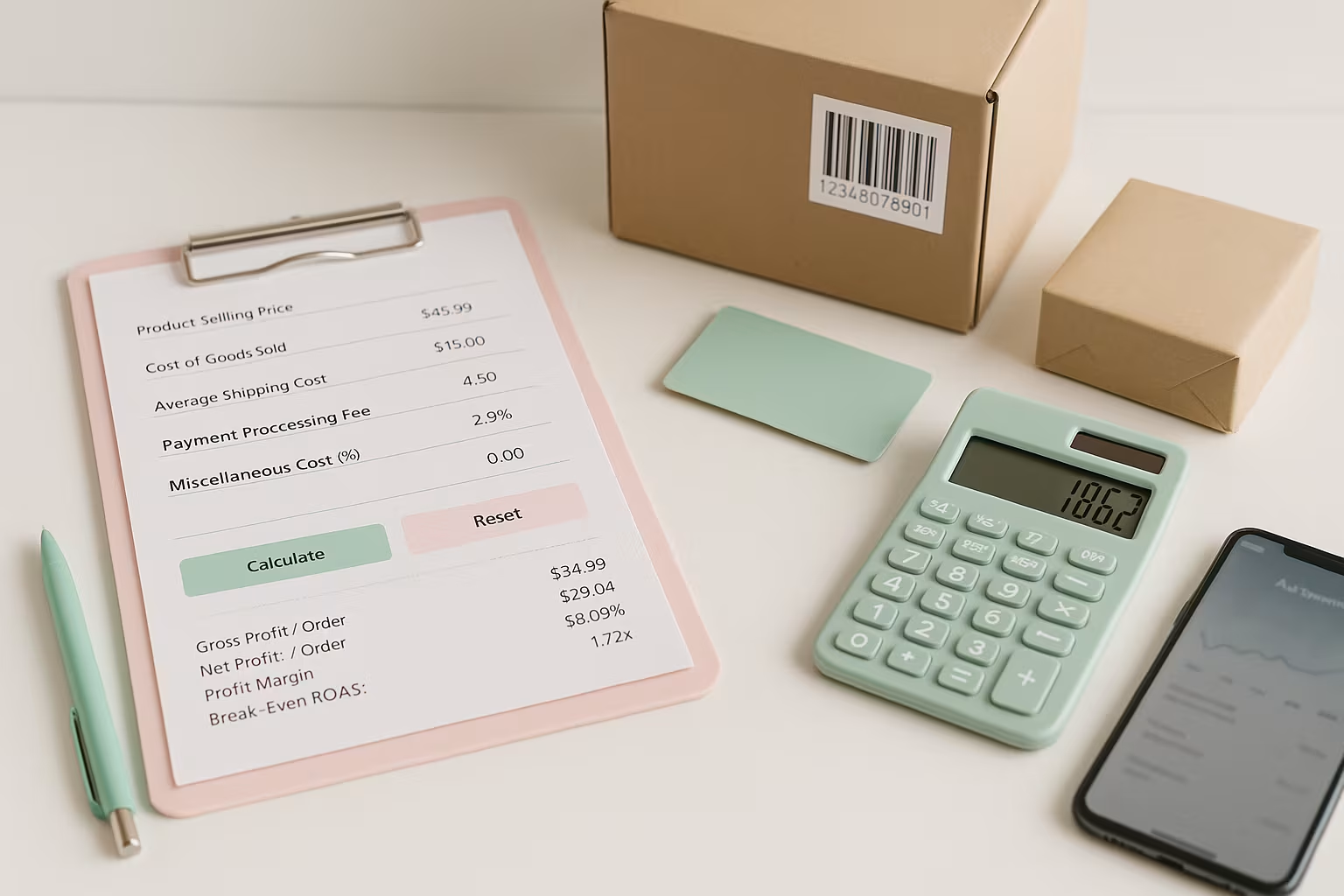
Break-Even ROAS Calculator: Find Out What You Can Afford to Spend on Ads
